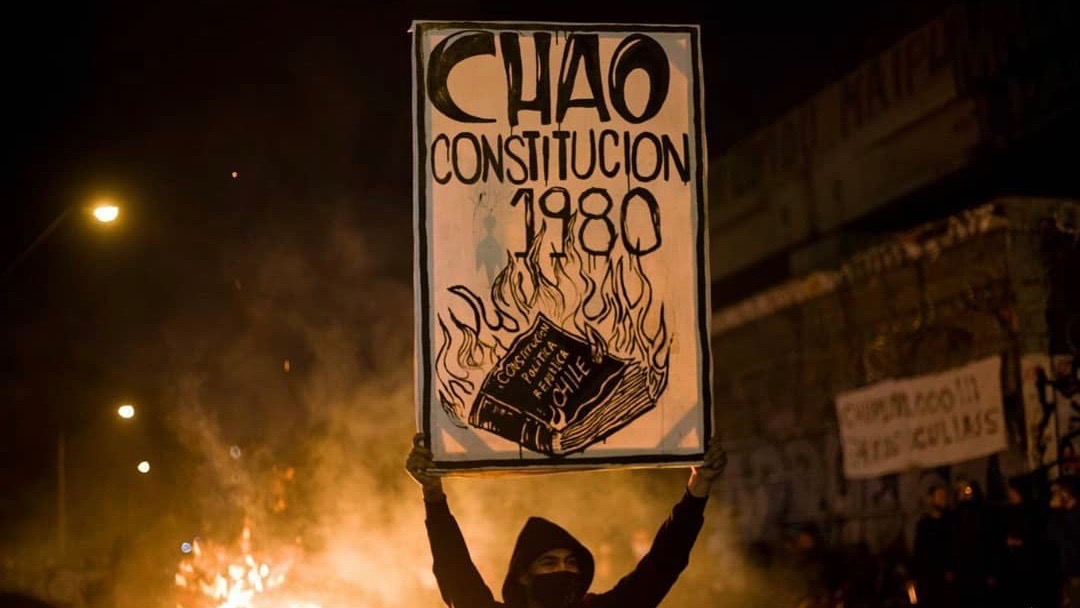This weekend, on May 15 and 16, in historic elections, around 15 million Chileans will go to the polls to elect the 155 members of the Constitutional Convention. The Constitutional Convention is the body that will have the responsibility of writing the country’s new constitution to replace the current one, which was drafted and imposed in 1980 under the military dictatorship of General Augusto Pinochet (1973-1990).
Along with these elections, regional and municipal elections will also be held, in which Chileans will elect 16 regional governors, 345 mayors and 2,240 municipal councilors for the period 2021-2025. These elections were originally scheduled for October 25, 2020, but were postponed to April 11, 2021 due to the COVID-19 pandemic. On March 17 this year, a reform was passed to allow the elections to take place over two days, April 10 and 11. However, on 7 April, the elections were once again delayed to May 15 and 16 due to an increase in coronavirus cases.
Ahead of the elections, we try to answer some of the key questions regarding the upcoming crucial electoral process, which will also define the mood of the electorate with respect to the presidential and legislative elections in November.
Why are Chileans rewriting their constitution?
The demand to rewrite the constitution rose during the social uprising against the government’s neoliberal policies and glaring social inequalities in the country, which began on October 18, 2019 and continued for almost 5 months until the COVID-19 outbreak in March 2020. A year later, on October 25, 2020, in the national plebiscite, Chileans approved the drafting of a new constitution with an overwhelming majority of 78.27% of the votes and chose the Constitutional Convention for the great responsibility also with an immense majority of 79.04% of the votes.
What are some of the unique features of the Constitutional Convention?
The Constitutional Convention has some virtuous features. The body doesn’t have the participation of any parliamentarian and all the 155 members will be chosen by citizens for this special work.
The authority will have an equal number of female and male participants and the new Chilean Constitution will be the first constitution in the world to be written by a body with gender parity.
Additionally, of the total 155 seats, 17 are reserved for Indigenous people, another exemplary attribute that recognizes the Indigenous population and their rights, and ushers in the possibility of building a plurinational state. The people from 10 Indigenous communities in Chile, namely Mapuche, Aymara, Diaguita, Quechua, Atacameño, Qulla, Chango, Rapa Nui, Kawésqar and Yaghan, will elect their representatives.
How many candidates are contesting in the elections?
A total number of 1,191 candidates from different political parties, social movements and trade unions are contesting for the Constitutional Convention on 79 lists.
The “I Approve Dignity” list, made up of left-wing political parties and independents from social movements and trade unions; the “Approval” list, consisting of center-left parties; and the “Let’s go for Chile” list, a coalition of right-wing parties, are the three most popular lists among the voters.
What are the issues Chileans seek to address with the new constitution?
The major issue that Chileans seek to address with the new constitution is the access to long-delayed social rights, such as social security, education, housing, employment and healthcare. The COVID-19 pandemic has proved that access to quality public healthcare is very important, and so is the need to strengthen public education. It has also demonstrated that it is essential to reduce informal employment and introduce decent affordable housing policies. In terms of social rights, the country’s pension system (AFP), which is managed by private insurers, has recently become a cause of dispute between the national government and the population.
Besides these fundamental rights, the Chilean society strives to break free from authoritarianism and neoliberal economic models drafted by the oligarchy. They demand participation in decision-making at national level and institutional recognition for social organizations to counterbalance the enormous concentration of power of the corporate sector.
What are the challenges facing the Constitutional Convention in achieving true social justice?
In the face of the popular uprising in 2019, the far-right government led by President Sebastián Piñera agreed to write a new constitution but insisted on the creation of a constitutional ‘convention’ rather than an ‘assembly’, as it had been demanded by the mobilizing social sectors. Except for the Communist Party of Chile (PCC) and those part of the “I Approve Dignity” list, all the other opposition forces surrendered to the right-wing’s maneuver and signed the agreement. As a consequence of the same, the members of the Constitutional Convention will not be allowed to challenge the international treaties, therefore, the free trade agreements.
Additionally, the Constitutional Convention will face the challenge of achieving a two-thirds majority for the approval of every article proposed. The agreement signed between the ruling parties and the opposition established that any agreement reached by the body will require the support of 2/3 of its members for approval.
In case, if the right-wing, which is against the drafting of a new constitution, manages to have more than a third of the constituents, it will have the power to block any social reform and veto it. This is especially significant because the right has come out united in a great national alliance -Let’s go for Chile-, whereas the left and the center-left have been divided into more than four platforms.
What will happen after the election of the constituents?
After being elected, the constituents will have nine to twelve months to work on the new constitution. After its preparation, the final draft of the new constitution will be put to a popular referendum for ratification. It will be a mandatory voting process and will take place in 2022.





